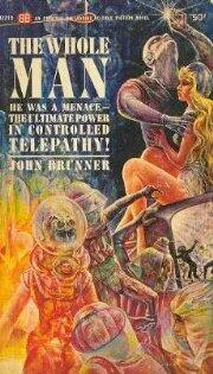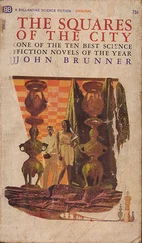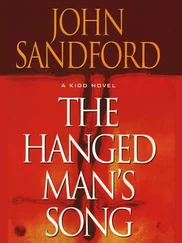It was agreed by everyone that things were worse now. In fact, from the material point of view, things were slightly better. What depressed people so much was a subjective consideration. It had happened here. We, our families, our city, our country, have been shamed in the eyes of the world; murder was done on our streets, there were dynamite outrages and acts of terrorism here. Shame and self-condemnation turned readily to depression and apathy.
There was no true economic depression, and little unemployment, during the next few years, but some of the savoir of life seemed to be missing. Fashions no longer changed so quickly and colorfully. Cars no longer sported startling decoration, but became functional and monotonous. People felt obscurely that to treat themselves to luxuries was a betrayal of — of something; as it were, they wanted to be seen to concentrate on the search for a new national goal, a symbol of status to redeem their world-watched failure.
Extravagance became a mark of social irresponsibility, the badge of the fringe criminal — the man with influence, the black marketer. These latter regarded the average run of the population, puritanical, working hard as though to escape a horrible memory, as mugs. The “mugs” condemned those who were blatantly enjoying themselves as parasites.
Through this epoch Sarah Howson moved like a sleepwalker, measuring her life by routine events. For a while there was some sort of an allowance, issued in scrip and redeemable at specified stores, which was just about enough to keep her and the child. She didn’t bother to wonder about it, even though it was much discussed by ordinary folk — usually they condemned it, because it was available to women like Sarah Howson, who had committed the double crime of bearing an illegitimate child and also associating with a known terrorist. But these discussions she seldom heard; hardly anyone talked to her in the street where she lived, now.
When the period of the allowance expired, she got work for a while cleaning offices and serving at the counter of a canteen. Wages were low, part of the general syndrome of reaction against affluence which had followed the upheaval. She hunted without much success for better-paid employment.
Then she met a widower with a teenage son and daughter who wanted a housekeeper-mistress and didn’t mind about the brat or her decaying looks. She moved across the city to his apartment in a large, crumbling near-tenement block and was at least secured against poverty. There was a roof and a bed, food, a little spending money for clothes, for the child, for a bottle of liquor on Saturday night.
Young Gerald endured what happened to him without objection: being placed in a crèche while his mother worked as a cleaner, being put aside, like an inanimate object, at the widower’s apartment when they moved there. At the crèche, naturally, they had clucked sympathetically about his deformity and made inquiries into his medical record, which was already long. But there was nothing to be done except exercise his limbs and enable him to make the best possible use of them. He learned to talk late, but quickly; surveying the world with bright grave eyes set in his idiot’s face, he progressed from concrete to abstract concepts without difficulty, as though he had delayed speaking deliberately until he had thought the matter through.
But by then he was no longer being sent to the crèche, so no one with specialized knowledge noted this promising development.
Crawling hurt him; he did it only for a short period, whimpering after a brief all-fours excursion like a dog with a thorn in its pad. He was four before he got his awkward limbs sufficiently organized to stand up without support, but he had already learned to get around a room with his hands on the wall or clutching chairs and tables. Once he could stand without toppling, he seemed almost to force himself to finish the job; swaying on slow uneven legs, he set out into the middle of the room — fell — rose without complaint and tried again.
He would always limp, but at least when it came time for schooling he could walk a straight line, achieve a hobbling run for twenty yards, and climb stairs with alternate feet rather than using the same foot for every step.
His mother’s attitude was one of indifference by now. Here he was: a fact, to be endured. So there was no praise or encouragement when he mastered some difficult task such as the stairs — only a shrug of qualified relief that he wasn’t totally helpless. The widower sometimes took him on his knee, told him stories, or answered questions for him, but showed no great enthusiasm for the job. He would excuse himself by saying he was too old to be much interested in young kids — after all, his own children were of an age to leave home, maybe to marry. But sometimes he was more honest, and confessed that the kid disturbed him. The eyes — maybe that was it: the bright eyes in the slack face. Or else it was the adult form of the sentences that emerged in the hesitant babyish voice.
When she was feeling more than usually tolerant of her son, Sarah Howson took him around the stores with her, defiantly accepting the murmurs of false pity which inevitably echoed around her. Here, in this part of the city, she wasn’t known as Gerald Pond’s mistress. But taking him out involved getting the folding push-chair down the narrow, many-angled stairway of the apartment block, so she didn’t do it often. Before she left to get married, the widower’s daughter took him a few times to a children’s park and put him on swings and showed him the animals kept there — a pony, rabbits, squirrels and bush babies. But the last time she tried it he sat silent, staring at the agility of the monkeys, and tears crawled down his cheeks.
There was TV in the apartment, and he learned early how to switch it on and change channels. He spent a great deal of time gazing at it, obviously not understanding a fraction of what was going on… and yet perhaps he did; it was impossible to be sure. One thing was definite, if surprising: before he started school, before he could read or write, he could be trusted to answer the phone and memorize a message flawlessly, even if it included a phone number of full cross-country direct-dialing length.
He had seen few books before he began in school. Neither his mother nor the widower read for pleasure, though they took in a daily paper. The son bought men’s magazines for the spicy items and the nudes; the daughter bought fashion magazines occasionally, though the climate was still against excessive elegance, and romantic novels and love-comics.
His first steps towards reading came from the TV. He figured out for himself the sound-to-symbol idea, and school only filled in the details for him — he already had the outline. He progressed so rapidly that the class-teacher into whose care he was put came around to see his mother after six weeks. She was young and idealistic, and acutely conscious of the prevailing mood of the country.
She tried to persuade Sarah Howson that her son was too promising to be made to suffer the knocks and mockery of the other children in a regular school The government had lately set up a number of special schools, one of them on the outskirts of the city, for children in need of unusual treatment. Why not, she demanded, arrange for his transfer?
Sarah Howson was briefly tempted, although she had visions of forms, applications, letters to write, interviews, appointments, all of which dismayed her. She inquired if he could be sent to the special school as a boarding pupil.
The teacher checked the regulations, and found the answer: no, not when the home was less than one hour’s travel by public transport from the nearest such school. (Except as provided for in clause X, subsection Y, paragraph Z… and so on.)
Читать дальше












